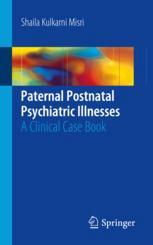

Most ebook files are in PDF format, so you can easily read them using various software such as Foxit Reader or directly on the Google Chrome browser.
Some ebook files are released by publishers in other formats such as .awz, .mobi, .epub, .fb2, etc. You may need to install specific software to read these formats on mobile/PC, such as Calibre.
Please read the tutorial at this link: https://ebookbell.com/faq
We offer FREE conversion to the popular formats you request; however, this may take some time. Therefore, right after payment, please email us, and we will try to provide the service as quickly as possible.
For some exceptional file formats or broken links (if any), please refrain from opening any disputes. Instead, email us first, and we will try to assist within a maximum of 6 hours.
EbookBell Team

4.1
60 reviewsThis book is the first to present the current research showing that like mothers, some fathers struggle with postpartum psychiatric illnesses and have unique needs of their own. Each chapter opens with a case vignette that describes different psychopathologies in the father and demonstrates the unique struggles presented by each situation. The cases highlight social, emotional and cultural upheaval that fathers may experience during the postpartum period. Sections in each chapter include manifestations of their illness, DSM-5 diagnoses, case discussion, treatment interventions and recommendations for health care professionals. This volume also puts paternal postpartum depression into conversation with other psychiatric comorbidities, including various personality disorders, anxiety disorders, and addictions. The text also addresses the various stigmas associated with these unique cases and offers clinical pearls on how to treat these families while giving consideration to the needs of the family.
Written by renown experts in postpartum health, Paternal Postnatal Psychiatric Illnesses is an excellent resource for psychiatrists, psychologists, family therapists, general practitioners, obstetricians, social workers, and all clinicians working with postpartum families.